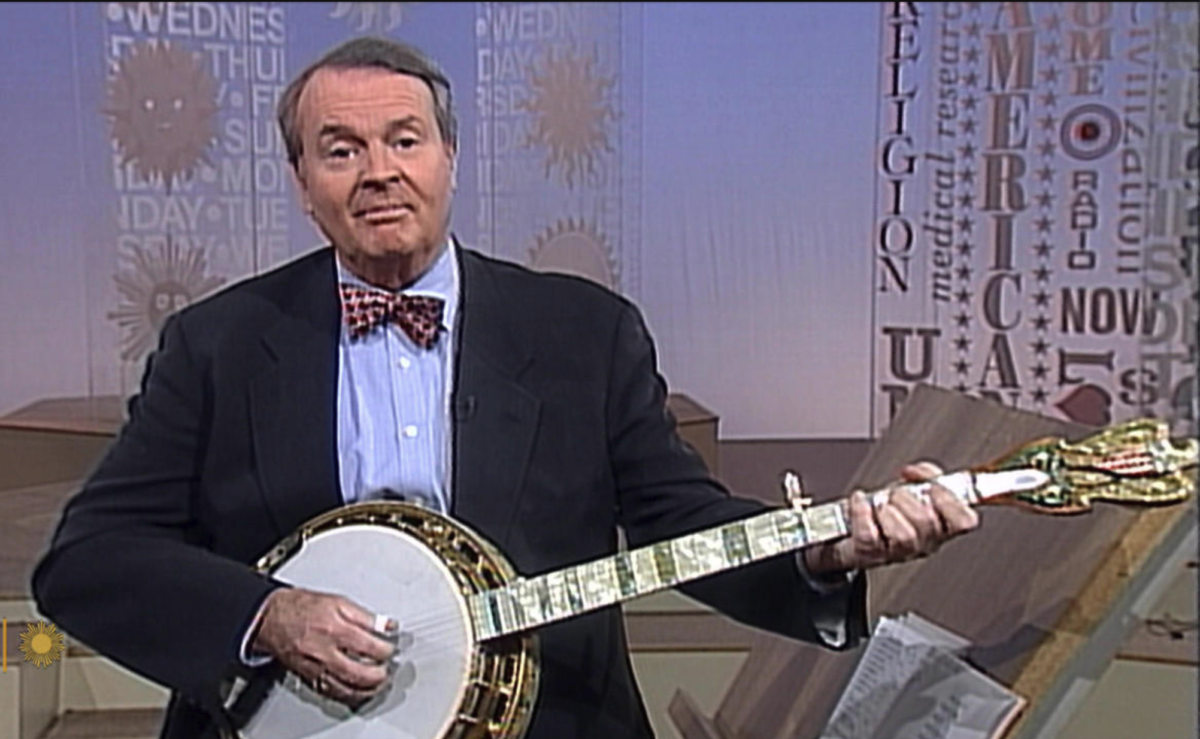The Big Picture –
By Glynn Wilson –
WASHINGTON, D.C. — When the news broke in the New York Times this past week that Charles Osgood Wood died, I knew there would be a retrospective on CBS’s “Sunday Morning” show.
I made it a point to get out of bed at 9 a.m. in time to watch, after a night of sleeping through an incessant rain. I also knew that it would be mostly a feel good retrospective on the past, mostly set in the 20th century. Of course it was.
If I had the chance to visit him at his house in the South of France on the Mediterranean Sea, where he played a grand Steinway piano that was used in the hit records of Frank Sinatra, I would have asked how he felt about all the changes in the world and the news business in the 21st century.
I doubt if he ever got excited about social media, and he probably felt bad about the death of newspapers. His chosen media of radio, and even later television, relied heavily on newspapers and newspaper reporters for material, what we call “content” in these days of TikTok, Twitter (X) and Facebook.
Osgood had the good timing in life to retire right after Trump took over the presidency. The South of France must have been a great place to ride out the Trump years. Although I’m sure he was just as appalled as we all were here in Washington, having to endure the daily tweet storm from the commander-in-cheat. I’m sure he too worried about the future of democracy and the fate of planet Earth.
He doesn’t have to worry about these things anymore. His legacy will live on because they will never let us forget, as long as there is a digital broadcast signal bouncing off a satellite somewhere, even on the surface of the moon or Mars.
I tried a couple of times in my life to make the transition from print to radio and television. It did not take. I interviewed to be an associate producer on CNN in Atlanta in 1993, but ended up going back to grad school instead. In 2005 after moving back from Washington to Birmingham when my mom got sick, I created a radio show to go with a new website I created. It almost made it on the air, but my partner at the time decided he would rather run a losing campaign for the Alabama legislature. So my transition was strictly from print to the web, where I’ve been publishing ever since.
Clearly I was ahead of the technology curve at the time. Some people in traditional journalism seemed to hate me for it. But I wonder how those same people feel now with Machine Learning or Artificial Intelligence taking over the writing and photography businesses. Google and Facebook were bad enough. Now this.
I reluctantly signed up for Facebook when it was new in 2009. For awhile there it helped promote news on the web, until Mark Zuckerberg took it public in 2012.
Now everyone’s addiction to tweets and memes just takes away from the news itself. It clearly helped Trump take over the country in 2017, and we all had to work and fight like hell to get rid of him in 2020.
But he just won’t go away, like The Joker in the Marvel Comic Batman series, now a staple of blockbuster movies.
So far about the only person to find a way to capitalize on Trump’s ogre-like defamation is E. Jean Carroll, who had already won a $5 million judgement against Trump. He couldn’t shut up about it, so she sued him again, and this time won an $83.3 million judgement. She has vowed to use the money for good.
Carroll Promises to Do ‘Something Good’ With a Fortune Won From Trump
Good for her.
New York Times columnist Maureen Dowd this week compared Trump to the monster Grendel from Beowulf, “the terror-monger” and “captain of evil” and “the dread of the land,” a fiend who “ruled in defiance of right” and was “malignant by nature” and “never showed remorse.”
This “powerful demon” was “a prowler through the dark,” nursing “a hard grievance.”
“Grendel waged his lonely war, inflicting constant cruelties on the people, atrocious hurt.”
Did Grendel have his supporters in his day? Were there actually people who supported the monster’s raids on the Anglo-Saxon mead hall?
I guess there must have been a few. There would have been more, but the only way information got transmitted in those days was by word of mouth and scribes copying scrolls.
In the early days of the internet, I fell in love with the new technology. I embraced the cutting edge.
These days sometimes I wish we could roll back the clock and do it all over again. Maybe we could have figured out a way to do it better.
Clearly the best invention in the past 20 years was the iPhone, which debuted on Jan. 9, 2007. Of all the tech companies, Apple seems to be the only one left with a conscience. Most of the mass public seems to have no powers of discrimination when it comes to the new technology. There are people who still swear by Google, Facebook, Twitter (X), TikTok and the rest.
Studies show that not only do these platforms shape conservative and liberal bubbles, much of the content still being promoted by bots is old and out of date.
The speed and intensity of news was heightened by the 24-hour news cycle of cable news back in the 1990s. In the early days of the internet, reporters had to work harder than ever to keep up with it. Now it’s all being slowed down by the algorithms. This technology is clearly becoming obsolete.
What will replace it? I must humbly admit I have no idea. I suppose a chat bot and an AI fake image.
I’m ready for retirement. The South of France would be nice. Or somewhere out West.
If things go horribly wrong in November, 2024, there’s always Canada.
___
If you support truth in reporting with no paywall, and fearless writing with no popup ads or sponsored content, consider making a contribution today with GoFundMe or Patreon or PayPal. We just tell it like it is, no sensational clickbait or pretentious BS.














